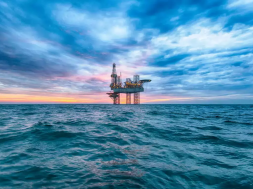
DNV GL: a cleaner, more electrified world is within reach by 2050
DNV GL today published its first Energy Transition Outlook (ETO): Renewables, Power and Energy Use. The industry implication report is part of DNV GL’s new suite of Energy Transition Outlook publications. The report reviews global energy demand and energy supply and summarizes the implications for the power and renewables sector and large industrial energy users.
An era of abundant and cleaner energy lies ahead of us according to DNV GL’s modelling of the world energy system. The key findings of the report emerging globally over the forecasting period include:
Electricity consumption increases by 140% by 2050, becoming the largest energy carrier, followed by gas. Other energy carriers, such as coal and oil, experience significant reductions or only slight increases in consumption.
85% of global electricity production in 2050 comes from renewable sources ‒ Solar PV will provide around a third of the world’s electricity by 2050, followed by onshore wind, hydropower and offshore wind, in that order.
Despite this optimistic outlook, the report finds that we are currently not on course to achieve the climate objectives of the Paris agreement.
DNV GL forecasts that humanity will exhaust the 2°C carbon budget (the amount of CO2 that can be emitted without triggering dangerous climate change) by 2041, pointing towards a global warming of 2.5°C above pre-industrial levels, a level which is likely to force dangerous climate change.
“Our report shows that the energy industry, more than any other, has the power and knowledge to manage the world’s carbon budget in a smarter way,” said Ditlev Engel, CEO at DNV GL – Energy. “Until 2050 the electricity share of energy demand will grow from 18% to 40% yet this transformation is not happening fast enough. Speeding up the acceleration of electrifying sectors like heat and transport will be one vital measure to put the brakes on global warming. The climate challenge is not an engineering challenge, but one of governance. We call upon all stakeholders to maximise the electrification of their operations.”
To achieve the target of a low-carbon world, there is no single solution. Instead, multiple achievable actions must be taken both locally and globally, involving collaboration within the energy sector and across industries:
Action1: Greater and earlier adoption of renewables
Assist the growth of offshore wind
Drive uptake of data analysis to optimize performance of wind, solar, grids, and energy use
Invest in cyber security to ensure a robust electricity supply
Provide flexibility, balancing and cost-effective integration solutions
Optimize grids to facilitate growth of renewables
Action 2: Greater and earlier electrification of heat and transport
Drive the uptake of decarbonisation of heat
Broader adoption of electric vehicles contributing to energy savings and emissions reduction
Action 3: Greater improvements in energy efficiency
Invest in strategic energy management
Action 4: Change in personal behaviour
Increase the level of public acceptance to shape consumer behaviour
Availability of subsidies
DNV GL’s ETO report was prepared by a dedicated research team, which received input from hundreds of energy experts from inside and outside the organization. The report arms all relevant sectors with a wealth of factual ammunition to adapt strategies, and be bold in making evidence-based decisions to transform energy systems
The full report is now available to download here.
About DNV GL
DNV GL is a global quality assurance and risk management company. Driven by our purpose of safeguarding life, property and the environment, we enable organizations to advance the safety and sustainability of their business. We provide classification, technical assurance, software and independent expert advisory services to the maritime, oil & gas, power and renewables industries. We also provide certification and supply chain services to customers across a wide range of industries. Operating in more than 100 countries, our experts are dedicated to helping customers make the world safer, smarter and greener
DNV GL in the energy industry
DNV GL delivers world-renowned testing and advisory services to the energy value chain including renewables, power and energy management. Our expertise spans onshore and offshore wind power, solar, conventional generation, transmission and distribution, smart grids, and sustainable energy use, as well as energy markets and regulations. Our energy experts support customers around the globe in delivering a safe, reliable, efficient, and sustainable energy supply.
















